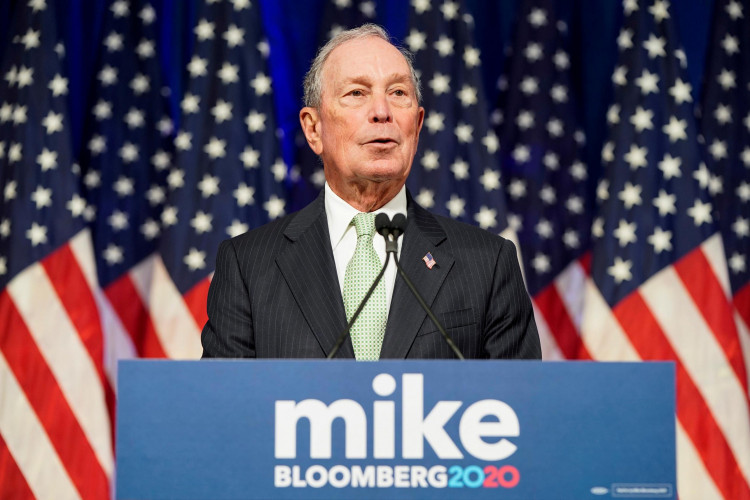Democratic Party presidential candidate nominee Mike Bloomberg -- the eighth richest person in the U.S. with a net worth of $62 billion -- enters Super Tuesday on March 3 with a surge in support among African-American voters that comprise a fourth of the party's voter population.
Bloomberg only announced his candidacy on Nov. 24, 2019, saying, "I'm running for president to defeat Donald Trump and rebuild America."
As part of his unorthodox strategy to win the nomination, Bloomberg chose not to compete in the party's first four caucuses and primaries (Iowa, New Hampshire, Nevada, and South Carolina) to focus on winning the presidential primaries in the 14 states that vote on Super Tuesday. Bloomberg's spent some $314 million of his own massive fortune wooing voters, especially blacks and Latinos, with TV and social media ads touting his support for minorities. Bloomberg's money-driven tactics seem to be working.
Bloomberg has won endorsements from four members of the influential Congressional Black Caucus (CBC), which is the most among any other Democratic candidate except former vice president Joe Biden, who has 18 endorsements. CBC is a coalition of African-American members of the House and Senate. Polls by prominent political analysis website FiveThirtyEight has Bloomberg in third place for the nomination behind Sen. Bernie Sanders (I-VT) and Biden
Bloomberg is running in the "moderate lane" of the Democratic primary along with Biden, but against the progressive Sanders, who proudly describes himself as a democratic socialist who will hike taxes for the wealthy and big business while fighting for a $15 per hour minimum wage.
Bloomberg's appeal for African-American support is being made tougher by the controversial "stop-and-frisk" policy he approved and implemented as New York City mayor. At the time, Bloomberg defended stop-and-frisk, saying "We put all the cops in minority neighborhoods. "Why do we do it? Because that's where all the crime is."
This Bloomberg policy, which Democrats widely condemned as racist, gave some white police officers in the New York City Police Department (NYPD) free reign to express their innate racism. In 2013, the New York Civil Liberties Union reported 56% of NYPD stops and interrogations were of black people. In contrast, 29% were of stops were Latinos while a mere 11% were of white people.
Bloomberg, who became a Democrat again in 2018 after renouncing the party in 2001, has since apologized for stop-and-frisk, however. He again apologized at last week's "Mike for Black America" event in Houston, Texas where he promised to "right the wrongs of institutional racism.
"I know I can't change history," he said. "But what I can do is learn from my mistakes -- and use those lessons to do right by black and brown communities who have suffered."
Bloomberg had been successful in obtaining the endorsements of current and former black mayors, because his efforts prove his outreach to black communities, believes Khalilah Brown-Dean, an associate professor of political science at Quinnipiac University.
Bloomberg has been a harsh and very vocal critic of Trump. At the 2016 Democratic National Convention, he blasted Trump a "dangerous demagogue" whose presidency will be a "disaster in the making." He also criticized Trump's business acumen and his many business failures.
Since he left the job of New York City mayor in 2013, Bloomberg has dedicated his time to Bloomberg Philanthropies. This organization includes all of Bloomberg's charitable giving and focuses on five main areas: public health, the environment, education, government innovation, and arts and culture. The Chronicle of Philanthropy listed Bloomberg as the second-most generous philanthropist of 2018, behind Jeff and MacKenzie Bezos.





